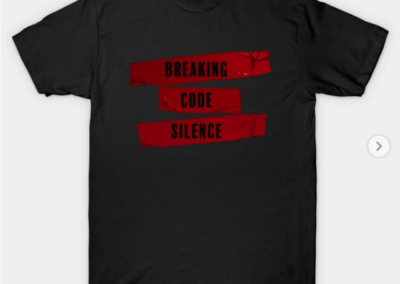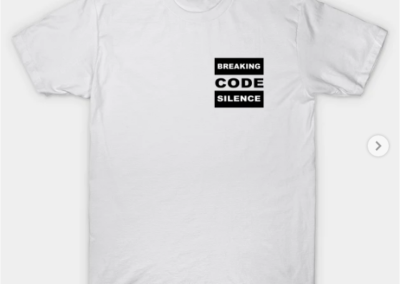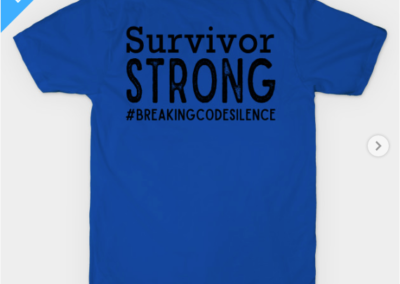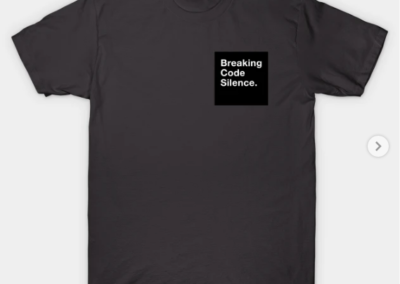In this post, we will go over part 3 of Ben Trane’s sentencing. In this part, there’s quite a bit of back and forth between Parrish and the judge as to whether or not Ben Trane received effective counsel. He calls into question much that the attorney did with the little time that Ben Trane allowed her to have since he refused to waive his right to a speedy trial.
Parrish argues that the attorney never defended a sex abuse case before and it’s different than prosecuting one of those cases. Even if this is her first case of this nature, the law does not stipulate a “do-over” because the defendant does not like the outcome.
She has already agreed–she did answer she had never defended one of these cases before. Obviously, she has prosecuted them.
Parrish wanted to ask Schaefer about her experience with child endangerment cases but he was limited in his questioning.
I would ask her the same questions about Child Endangerment, had she defended those. Since Ms. Timmins restricted her questions to the sex abuse cases, I restricted mine. I would have asked her questions about Child Endangerment.
Parrish makes the argument that the child endangerment and sexual abuse charges should have been separated into different trials and that it’s “law book 101.” This actually isn’t completely true as all the crimes were in the same period of time and could have been tried together. That is touched on later in the sentencing transcripts.
I also would have wanted to know why she didnt ask for severance in this case. I mean, this is an elementary severance case. You dont try a child endangerment based upon keeping someone locked up in a room and a sex abuse case where a person is making a specific allegation together. Thats just almost law book 101. So I would have wanted to
ask her, tell me, why didnt you ask for severance? Did you consider it? What steps did you take? Did you talk to the Court about it? Did you bring it up with your client? Why didnt you review that?Why didnt you ask for a severance from the Court? If it was too late to file motions, why didnt you file it at the current time?
Parrish claims that Schaefer didn’t make a motion to offer proof that the sexual abuse victim’s prior allegation was false. The judge corrects him stating she did offer proof – in the form of a telephone testimony by the victim’s adopted mother. Parrish claims he reviewed the court transcripts and that he won’t concede that she did offer proof and asks that the transcripts speak for itself.
I asked her when she disagreed with the Court with regard to your ruling on the 412 Motion, why didnt she make an offer of proof? I mean, I asked to do that this morning, and looking at the Courts reaction–
THE COURT: I thought she did make an offer of proof.
MR. PARRISH: Go ahead, Judge.
THE COURT: I thought she did make an offer of proof. But go ahead.
MR. PARRISH: Well, I reviewed the transcript. But, Judge, I would defer to your thought if you think she made an offer of proof on it. Thats fine. But I wont concede that, Judge, except I would let the transcript speak for itself as to an offer of proof.
- Offer of proof –
MS. SCHAEFER: Yes, Your Honor. My understanding after the deposition of one of the witnesses, a Kxxxxxx Xxxxxxxx, is that she had made various allegations towards her adoptive parents who live in the state of Wisconsin. And while we did know that there were sexual abuse allegations, we were not entirely clear of what those consisted of. And after speaking–after deposing her on Monday, the day before the trial began, I was able to get a little more detail on what those claims were, and then to speak to her adoptive mother who
MS. SCHAEFER: Yes, Your Honor. My understanding after the deposition of one of the witnesses, a Kxxxxxx Xxxxxxxx, is that she had made various allegations towards her adoptive parents who live in the state of Wisconsin. And while we did know that there were sexual abuse allegations, we were not entirely clear of what those consisted of. And after speaking–after deposing her on Monday, the day before the trial began, I was able to get a little more detail on what those claims were, and then to speak to her adoptive mother who indicated those were not true, as well as some information on some other allegations of physical abuse that Kxxxxxx has made in the past that were unfounded and unsubstantiated and Ms. Xxxxxxxx–or excuse me–Ms. Xxxx–and that’s X-X-X-XX-X, I believe–would testify were false
allegations.
- The reason it was denied –
THE COURT: Based upon the information presented, the Motion filed by the defense will be denied on several– first of all, the timing. I believe it’s the Baker case set forth the standard, and then footnote 3 of the Alberts case sets forth that a defendant intending to offer such evidence must make a written motion to offer such evidence no later than fifteen days before trial. We’re way past that. Stating further, “This procedural requirement would also apply to alleged false claims of sexual conduct because they are covered by the rape-shield law unless proven to be false. The motion must be accompanied by a written offer of proof and the trial court must order a hearing in chambers to determine admissibility of such evidence.” Even without the timing issue, just the nature of the–if I take your offer of proof that that’s what she would state if she was here, it would also be insufficient for the Court to make a determination by a preponderance of the evidence that this statement was false. These types of allegations are multi-dimensional. And I don’t want to get in the situation, and I believe it was in the State’s argument, of doing a trial within a trial, which this could turn into, and I mean a long, long hearing. And that’s why that timing provision is in there, so as to avoid that. And even if that were the case, if we went the other way, I would determine that it would be–that the probative value would exceed the prejudice in this case at this time given what I know to this point in the case. So the Motion will be overruled and denied. I’ll try and put that in writing also in more detail. But we can proceed with opening statements now.
(In open court, outside the presence of the jury, in the presence of the Court, the Defendant, and counsel at 2:54 p.m.)
Parrish states he would have had the victim’s cell phone searched. When the judge rightly points out that the students didn’t have access to cell phones at the school, he changes it to her cell phone after she left the school months later. He wanted to surveil the victim of the crime in this case.
I would have asked her the questions about the telephone records. As the Court is well aware, if it tries a lot of these cases, that the telephone records of the alleged victim, [sexual abuse victim], would have been absolutely critical to review and–
THE COURT: Again, I dont mean to interrupt, but I thought they werent allowed phones there.
Ms. Timmins, do you remember it that way?
MS. TIMMINS: That was my understanding.
THE COURT: I mean, there were very strict rules at this place. If I remember, they werent allowed phones so there would be no Cellebrite to do on this phone because they werent allowed phones. There were very, very strict rules at that facility. Im sorry. Go ahead.
MR. PARRISH: Thats okay, Judge. But she had a cellphone when she left. And she stayed with her sister, and she also stayed with other people, and they would have been important, I believe. And I understand, Judge, its important for you to defend your ruling on this, but I think if you would listen to my thoughts on why the cellphone records would have been significant and why we automatically ask for them–all defense lawyers ask for them; all prosecutors ask for them–is you get these records, Judge, and you review these Cellebrite records for the purposes of obtaining who they called afterwards, who they talked to, are there text messages, are there social media postings. I had three hearings on this exact same issue last week before Judge Van Marel in Story County. And on two witnesses when the State would not produce it, he ordered them produced. And thats in the case of State vs. Rock. So Judge, every lawyer I talk to, every seminar I attend, that is what theyre telling us is thats almost a prerequisite to defending sex abuse cases nowadays. So her phone records, I believe, Judge, could have been requested. Text records could have been obtained. Social media postings could have been obtained from that. And the question is: Was that done? I believe her response would be that it wasnt done. It could have beenmuch like your response, Judge, that I dont think I was entitled to it because they didnt have phones there. And my response to that would be, I get it, but simply because they didnt have phones at the institution didnt mean that they didnt have phones afterwards, and she communicated with people and people communicated with her. It would be directly relevant, Judge, on the issue of a 412 motion. Why it would be relevant on that, and thatswhat our offer of proof would show, is that it would be significant on that one because if she communicated with this foster mom or the adoptive mom after that, it would go in to support there was no communication, support to a jury or even maybe to a court the idea that that information would have been significant for her to follow up on. Its not a question, Judge, as they said in the Anfinson case, which I argued before the Iowa Supreme Court. I believe an excellent lawyer was on the other side of that one, Mr. Kutmus. In that case, as the Court well knows–kind of a trendsetter for what defense lawyers are required to do. And I dont want to bore you with the facts on that case, Judge, but the details of it was that a woman was charged with the death of her child. She was convicted. It went up, and the lawyer didnt do an investigation into her mentalstate. I believe it was Judge Hecht who wrote the opinion. And in that opinion, he outlined what are the rudimentary things that defense lawyers ought to do. And I think in that case, Judge, I think Judge Appel has written several opinions that pretty much lay out what the requirements are. So we believe, Judge, that the Cellebrite records would have been something that should have been obtained from not just her, Judge, but they should have been obtained from all the witnesses to see if these parties exchanged communications with each other, and if they had, what was the nature of it, and ask them those questions on the record with regard to depositions.
Parrish laughably asks why Schaefer didn’t just ask for help from paralegals or the state with searching through the 5 terabytes of data. Remember: It took the FBI over a year to scan this documentation in and months further to organize it for the state. It sounds as if Parrish is insinuating that it was the fault of the attorney that she was not able to get through 5 terabytes of data before the trial – even though it was her client who made the decision to have a speedy trial while fully knowing they didn’t have time to review the documents. Parrish’s approach to just asking for more assistance from the state landed him in some hot water years ago as reported in the Des Moines Register so it’s not surprising. Legally, there are financial caps for the amount of finanical assistance one can get from the state if they can’t afford their own lawyer.
I think, Judge, when she talked about the terabytes of information–and several lawyers in my office do court-appointed CJA work now. I dont do a whole lot of it. I used to do a lot of it years ago, as the Court may have been aware. I havent done it in several years. But she indicated she just didnt have time to go through the terabytes. I would have asked her, does she have any paralegals in her office; could she have made a request to the Court to get some assistance to review the terabytes of information? I would have then asked, Judge, well, if that is significant and important for you to have, and it included records of all the people and where they were placed at various times in the building, and you didnt get that until the 28th, rather than just ignoring it, why wouldnt you set up some system to review and then have a paralegal, ask for some assistance from the State, review those records and see if there are people who would contradict the other people?
Parrish claims that one of the 12 year old victims not testifying and having his mother testify was hearsay. One could read said mother’s testimony here. The victim himself could not testify due to his mental state after Midwest Academy. At no point during her testimony did she attempt to speak for the victim. She stated the background of why her and her husband sent their son to Midwest Academy, the calls she personally received from his family rep, her experience with Ben Trane, the story of why she pulled her son out of the school, how her son acted in front of her after he came home. Everything she testified to was something she directly witnessed – not something that was told to her by her son and that she can’t substantiate. As far as the changes to her son, they did have the records from Midwest Academy and the OSS logs to show the amount of time he spent in OSS and his weight changes. These are not hearsay and they are referenced throughout the trial.
Also, Judge, I would have asked her, did you subpoena the records with regard to A.X.? It would be his medical records. Did she make objections with regard to the hearsay coming in with regard to A.X.? And if you didnt, why not? If she says that, in her statements, Denise Timmins told her, well, Im leaning against call him, but dont know that she could not have been able to–I wont say submarine you–but she shouldnt be able to ambush you in that fashion. She would have had to say, well, we had an agreement; you walk in before Judge Kruse; you outline what the agreement is. And you outline to Judge Kruse, look, Judge, I have a problem. She said shes not calling this witness. I dont want any hearsay to come in.











